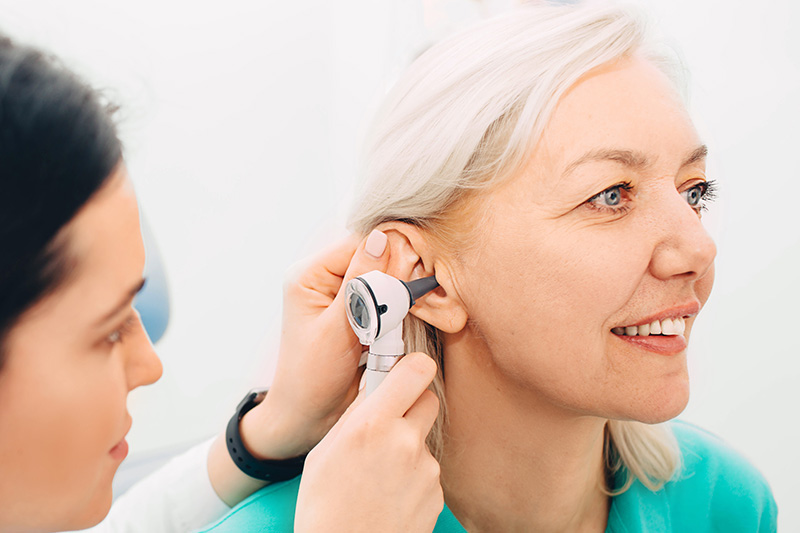Cochlear implants now more accessible for Medicare patients

There is welcome news for Medicare beneficiaries with advanced hearing loss. The Centers for Medicare and Medicaid Services announced it is lowering the threshold to qualify for cochlear implants. Rather than amplifying sound like traditional hearing aids, cochlear implants stimulate the auditory nerve and send signals directly to the brain.
Cochlear implants were first covered for adult Medicare beneficiaries beginning in October 1986, but only for those with hearing aid test scores of less than 40% unless enrolled in an approved trial. A memorandum issued in September 2022 qualifies individuals with hearing aid test scores less than 60%, and enrollment in trial is no longer required.
Peter Volsky, MD, Assistant Professor of Otolaryngology, says that no patient is too old to be a candidate for cochlear implants.
“Numerous studies have shown that whether an individual is 60 or 90, they benefit similarly from cochlear implantation, unless dementia is present,” says Dr. Volsky. “In addition, research shows that very elderly and frail are not at a significantly heightened risk of surgical complications if performed by an experienced team. If necessary, the operation can be performed under local anesthesia, and we have done this successfully at EVMS.”
Hearing loss affects approximately 29 million people, which is roughly 16% of the adult population of the United States. In its decision, the CMS shared that when reduced hearing causes poor communication, patients have a higher risk of disability, falls, dementia, depression, rates of hospitalization and overall poorer quality of life.
To be eligible for the benefit, CMS requires patients meet the following criteria:
- Diagnosis of bilateral moderate-to-profound sensorineural hearing impairment with limited benefit from appropriate hearing (or vibrotactile) aids;
- Cognitive ability to use auditory clues and a willingness to undergo an extended program of rehabilitation;
- Freedom from middle ear infection, an accessible cochlear lumen that is structurally suited to implantation, and freedom from lesions in the auditory nerve and acoustic areas of the central nervous system;
- No contraindications to surgery; and
- The device must be used in accordance with Food and Drug Administration (FDA)-approved labeling.
Dr. Volsky encourages anyone who is interested to consult with an implant audiologist and a surgeon (otologist/neurotologist) to make the determination of candidacy. Surgical services are offered by Dr. Volsky as well as Dr. Stephanie Moody Antonio, Director of the EVMS/CHKD Cochlear Implant Program, and Dr. Barry Strasnick, the Department Chairman.
To learn more about cochlear implants or to set up an appointment with Dr. Volsky, visit EVMS Ear, Nose and Throat Surgeons.